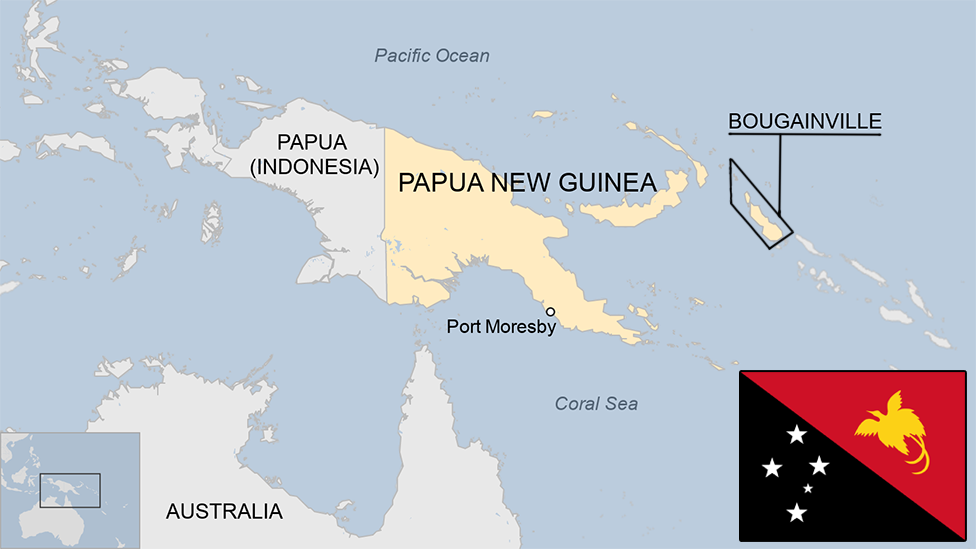Papua New Guinea PM Peter O'Neill tries to stall own resignation
- Published

Prime Minister Peter O'Neill has been in power since 2011
Papua New Guinea's embattled prime minister appears to be attempting to stall his own resignation, days after he announced he was stepping down.
Peter O'Neill told reporters on Sunday he was going to hand power over in the interest of "political stability".
The decision followed a series of high-level defections to the opposition.
But Mr O'Neill has yet to formally hand in his resignation, and launched a bid to block a no-confidence vote in his government with the Supreme Court.
What's more, the ally he said he would hand power to - Sir Julius Chan - has now said it was a "huge misunderstanding" and he would not become prime minister.
Sir Julius, a former prime minister, told The Guardian, external that "the existing prime minister has no power to nominate a new prime minister".
Mr O'Neill's leadership has been under pressure over a range of issues, including a multi-billion-dollar gas project signed this year with French company Total and the US firm ExxonMobil.
Although the project would almost double PNG's gas exports, local communities have raised fears that they will be excluded from the benefits.
An attempt by the opposition to hold a no-confidence vote earlier this month was stalled after the government adjourned parliament for several weeks.
But with parliament reconvening on Tuesday, opposition figures warned they would press ahead with plans to topple Mr O'Neill - who has been in power since 2011.
If he does officially resign, MPs will get to choose a new prime minister. The opposition says it has enough support to form a new government.
The court has said it will hear Mr O'Neill's challenge on Friday.
- Published26 May 2019

- Published13 February 2019

- Published19 December 2023
